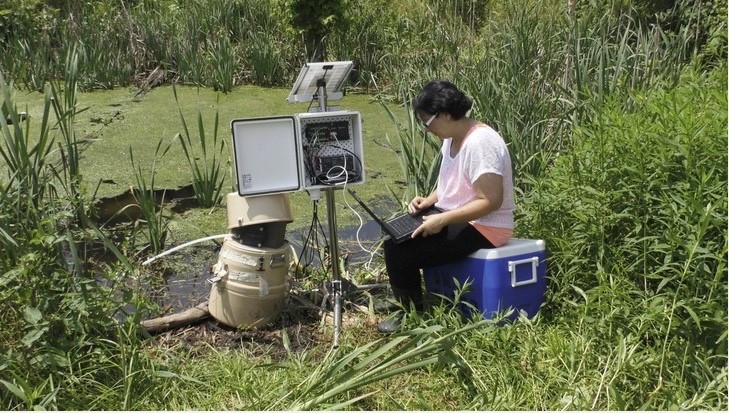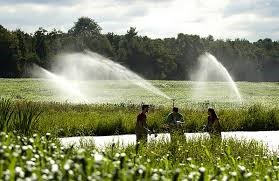By Laura Pinover

What You Need To Know
We’ve all seen the stickers, “The Three R’s of Life: Reduce, Reuse, Recycle” and “Recycling is sexy!”. Have you ever thought about recycling wastewater? Seems like a genius idea, right? Used water goes back to a treatment plant and then is filtered right back into our toilets, bathroom sinks, and irrigation practices. However, studies are now showing that recycled wastewater doesn’t always filter out emerging contaminants (EC’s).
The Science
Emerging contaminants are synthetic or natural chemicals, such as Estrogen, and can’t always be filtered out by wastewater treatment facilities. Dr. Odette Mina, a researcher at Penn State University, studied how irrigated wastewater that contains EC’s effects vernal pools. EC’s that contain hormones get into our wastewater from the shampoos, detergents, cosmetics, and prescriptions we use in our homes. Vernal pools are freshwater pools that fill with water in the spring and only last a couple of months before they evaporate. They provide crucial breeding habitat for multiple species, including high numbers of amphibians. Up until recently, we did not know how to detect low concentrations of emerging contaminants. The only studies to explain the effects dealt with high concentrations of EC’s. Dr. Odette Mina and her team used advanced technology in their lab at Penn State and decided to see what effects low concentrations of EC’s in irrigated wastewater would have on vernal pool sites. The team discovered that hormonal emerging contaminants in wastewater, can last up to 20 days in environments. Longer lasting EC’s have the ability to cause endocrine disruption to amphibians breeding in vernal pools.

What’s Next?
The research Odette conducted concludes that we need to take into consideration where we are using our wastewater. With a push for recycled wastewater all throughout the environmentalism/sustainability movement, we need to assess where it is safe and unsafe to use irrigated wastewater at freshwater ecosystems. We should assess what freshwater ecosystems are close to irrigated wastewater agricultural areas and how they may be affected. Refining our wastewater management practices can help filter out more EC’s. Advocating for advanced technology in our wastewater treatments plants can help reduce the risks our freshwater ecosystems are faced with.
What YOU can do!
Hold local governments accountable for their spending when it comes to your local wastewater treatment facility. Check to see if the products you use at home contain synthetic hormones. If they do, look for natural alternatives that are safer for our environment.
